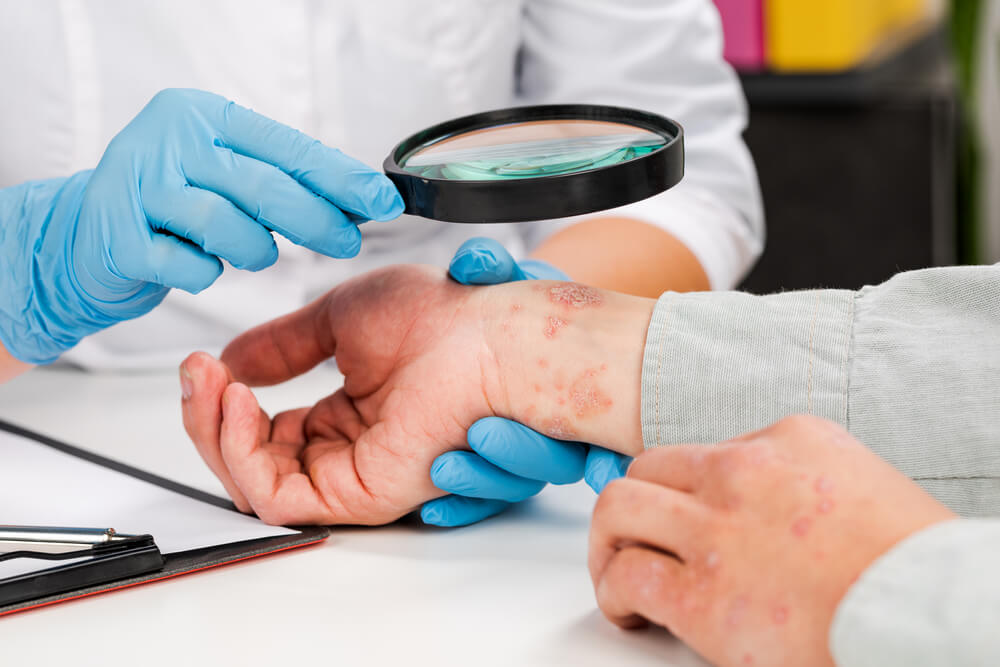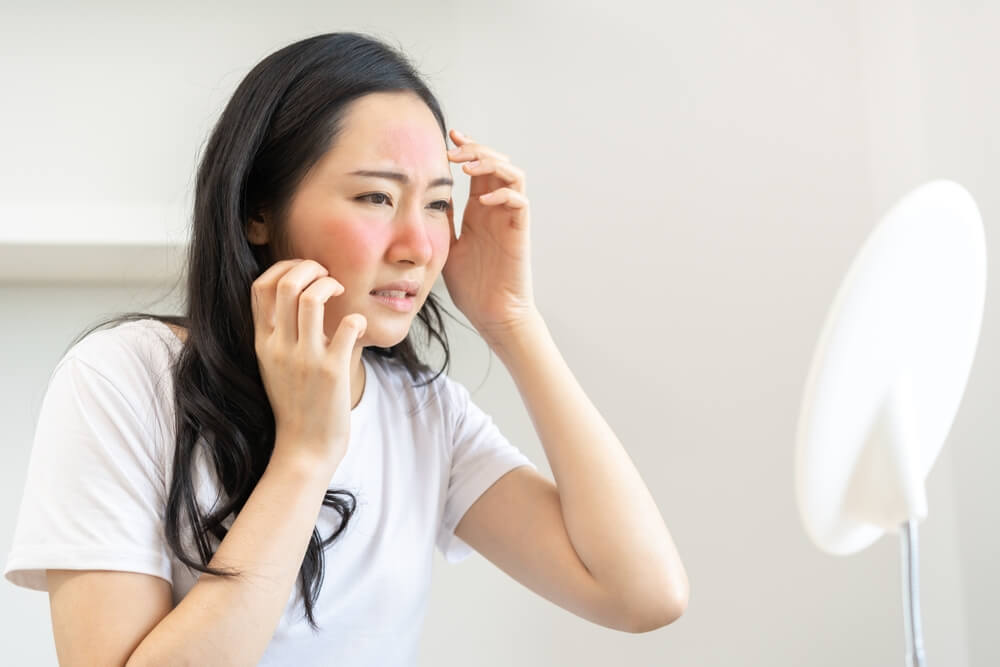Have you ever wondered what people who experience allergic reactions, such as a puffy face, congested nose, and teary eyes, do to treat their condition? Well, they can try different treatment paths and options until they find the most suitable solution for the symptoms of allergic reactions. That said, getting a proper diagnosis is the primary step toward healing, so allergy testing in Miami should be your first stop.
To get the most accurate test results and diagnosis, make sure you choose a recognized clinic such as the Allergy and Immunology Center, where you can speak with acknowledged experts and discuss your condition and potential solutions.
Allergic reactions are responses from our body’s immune system to external substances recognized as dangerous foreign intruders. The body is trying to defend the person from harmful substances, which in fact, are not harmful at all. The allergens (“harmful” substances) can come from anything, such as medication, foods, insect bites, pollen, etc.
When the body is in contact with allergens, especially in cases of severe allergic reactions, symptoms such as skin irritation, sneezing, coughing, bloody eyes, puffy face, etc., are common. In some instances, a person can go through anaphylaxis which is a life-threatening situation, resulting in blood pressure drop and heavy breathing that can lead to choking and cardiac arrest. If you or someone you are with experiences an anaphylactic shock, immediately call 911.
The most common symptoms include sneezing, skin irritation, hives, rashes, congested nose, breathing issues, vomiting, diarrhea, bloody eyes, facial swelling, dizziness, elevated pulse, and the like.
How to Treat an Allergic Reaction?

Now that you have understood what an allergic reaction is and how to recognize one, the article in front of you will continue to explain how to treat an allergic reaction. As mentioned, tactics are various, depending on the type of allergy you are experiencing, how severe the reaction is, and your overall well-being and lifestyle habits.
When it comes to mild to moderate reactions to allergens, first aid for an allergic reaction can be performed at home or by using over-the-counter medications. Here are some of the most common allergic reaction treatments which are used for mild reactions:
- Antihistamines are a type of medication most often used for mild allergic reactions, whatever the cause may be. The drug in question is taken so that the body lowers the production of histamine and, in that way, elevates the symptoms such as watery eyes and skin reactions. Some antihistamines cause drowsiness, but experts are working on creating drugs that will not negatively affect the patients. There are a few different forms of antihistamines, such as pills, nasal sprays, and tablets, that are dissolved in water, eye drops, or liquids. You can buy antihistamines in pharmacies, but first, speak to your chosen doctor and get guidance and advice from them. Antihistamines are very often taken as a preventive measure, especially by people who have seasonal allergies or pet allergies, to try to prevent a severe allergic reaction as efficiently as possible.
- Decongestant pills, sprays, and liquids used for nasal puffiness can reduce the swelling in the sinuses and other symptoms such as coughing or sore throat. Be aware that decongestant drugs are not advised to be taken for longer than 72 hours in continuation.
- Anti-inflammatory medication or NSAID (non-steroidal anti-inflammatory drugs) are recommended by medical professionals to help patients with swelling, pain, or cramps which are caused by allergies.
- Saline sinus rinse is a great example of an at-home allergic reaction treatment which is advised to patients who suffer from sinus issues caused by allergies. This rinse can remove potential allergens from your system and clear your airways. The recipe is simple; mix three teaspoons of salt with one teaspoon of baking soda and add eight ounces of boiling water. After the mixture is dissolved, you can use a sinus rinsing device and perform the treatment.
- Avoidance of allergens is also recommended, most often as a preventive measure. People who are aware of their allergic triggers avoid exposure to substances, which is especially specific to food allergies.
Specific Allergens and Treatments
When speaking about environmental and skin allergies, there are a few additional pieces of advice regarding first aid tactics for an allergic reaction.
For airborne allergies such as dust, mold, pollen, and similar, the treatments can also include washing clothes and showering right after exposure, using HEPA filters, menthol or honey throat lozenges, exercising to help with nasal congestion, etc.
When you experience an allergic reaction on your skin that can be caused by drugs, plants, metals, chemicals, etc., here are a few tips:
- Use a topical corticosteroid cream or tablets containing steroids that can help with itching and inflammation. Some of these creams can be bought in the pharmacy, over-the-counter, while some have to be prescribed by a doctor.
- When you get bitten by an insect, use a sting medication to reduce the reaction.
- If you suffer from skin inflammation, ice packs should be wrapped into a cloth and held for 15 minutes against the inflamed portion of the skin.
- Many moisturizing creams can soothe your skin and help with the symptoms of the allergic reaction.
Severe Allergic Reactions and Treatment
Although allergies are generally not seen as anything threatening or severe, it is of the utmost importance that you speak to a medical professional and get their expert opinion on your specific type of allergy. There are many different types of severe and chronic allergies, which can be life-threatening, so please be mindful of this.
Treatments that are often recommended for people with severe allergies include:
- Asthma medications prescribed by a doctor
- Immunotherapy
- Food allergies can be treated with oral cromolyn
- Drug desensitization therapy
Please do not take this lightly, especially if you know you have the potential to experience an anaphylactic shock. Anaphylaxis can have a deathly outcome, so speak to your chosen medical provider and let them advise you on what to do if this occurs. Most experts include the following steps when talking about first aid for an allergic reaction:
- Calm the person down
- If the person is vomiting, turn them on their side, and keep their mouth clean
- Lay the person flat on their back and raise their feet above the ground
- Remove clothing that is tight and constricting
- Avoid giving them any food or beverages
- Practice CPR if they stop breathing
- If the person has an EpiPen, inject it into their thigh, but only if it is a self-injectable dosage for anaphylaxis
Natural Treatment Paths

Even though there is not a lot of scientific evidence for many natural treatment options, people still use them because they have been quite efficient for many, especially regarding seasonal allergies.
Providing some kind of relief is crucial when speaking about natural remedies, so here are some options you might want to explore:
- Supplements such as vitamins A, C, and E, as well as zinc, flaxseed, etc.
- Changes in diet, where eating whole foods and a low-fat diet can help reduce allergic reactions
- Acupuncture has been said to help people experience relief from the symptoms
- Plant-based chemicals called bioflavonoids, found in citrus fruits, can act as antihistamines from nature itself.
Visit Us!
Being allergic to different substances is quite common in today’s world. To make your life easier and more enjoyable, visit our center and speak to our specialists. They will help you efficiently deal with your allergies.


